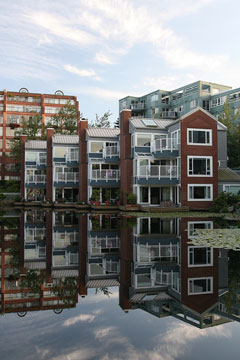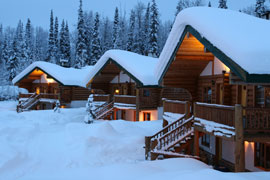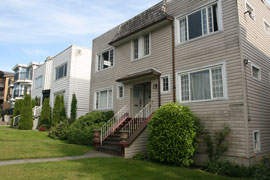Real Estate Location
Local Real Estate > Home Buying • Home Selling • Category List
Real Estate Markets • Remodeling For Resale • Location Factor
 We've all heard the saying "location, location, location." Well, when it
comes to real estate, nothing is more important than location. Location
is the final determinant in how a local market performs. When considering
your property investment, it's a good idea to understand the local market
and its features. Doing so will help ensure that you buy your property in
a neighborhood or area that will appreciate, not depreciate.
We've all heard the saying "location, location, location." Well, when it
comes to real estate, nothing is more important than location. Location
is the final determinant in how a local market performs. When considering
your property investment, it's a good idea to understand the local market
and its features. Doing so will help ensure that you buy your property in
a neighborhood or area that will appreciate, not depreciate.
That being said, it's not just location that determines the success of your investment. In addition to things like good amenities and excellent school systems, things like the climate, local economy, demographics, and job situation will also affect the local market. Every local area has a unique blend of characteristics that give it a certain flavor that is different from other areas. When all of these things are put together, the more attractive an area is overall, the more ability it will have to attract residents. When an area attracts residents and is known as a good place to live, it's a good bet the housing market will be robust.
- Livability - Top 100 places to live in 2016.
- Time Magazine - Best places to live in 2015.
- The Street - The 15 best places to live in the United States.
Of course, an area's flavor can change over time. We are all aware of depressed, inner-city neighborhoods that become "gentrified" over time and are suddenly attractive places to live. What makes this happen? Generally, an influx of higher-income people brings better restaurants, higher quality services, and improved school systems. While this generally happens over a period of time, the transformation can be remarkable. Those who buy property in such locations at the beginning of the transformation can certainly expect their values to rise, but it is those who had properties before the transformation even began who really make out well. Of course, hindsight is always 20/20!
Characteristics that affect buyers' reactions to a local area include the landscape, the climate, proximity to bodies of water, and natural resources, as well as a diversified economy, the job situation, an exciting downtown, and educational opportunities. Other important factors include proximity to hospital and medical services, recreation and parks, public transit, and the transportation infrastructure, in addition to government services, professional sports teams, and entertainment venues. Affordability and safety, plus culture and ethnicity issues, round out the characteristics that influence home prices in a particular neighborhood and region.
 While people are attracted by different things, the more people that are
attracted to a certain area, the better its real estate values. The more
of a mix an area has, the better the chances that it will attract more
people. That being said, areas with certain characteristics seem to
attract a certain demographic.
For example, mountainous regions tend to attract outdoorsy people who
enjoy outdoor activity and nature. Water, on the other hand, attracts a
diverse group of people. While cities were initially built near water for
transportation and shipping reasons, most people who choose to live near
the water today either enjoy it recreationally or like its soothing
effect. As a general rule, the closer a home is to the water, the more
expensive it is.
While people are attracted by different things, the more people that are
attracted to a certain area, the better its real estate values. The more
of a mix an area has, the better the chances that it will attract more
people. That being said, areas with certain characteristics seem to
attract a certain demographic.
For example, mountainous regions tend to attract outdoorsy people who
enjoy outdoor activity and nature. Water, on the other hand, attracts a
diverse group of people. While cities were initially built near water for
transportation and shipping reasons, most people who choose to live near
the water today either enjoy it recreationally or like its soothing
effect. As a general rule, the closer a home is to the water, the more
expensive it is.
The more resources an area has, the more it will attract residents. While in the old days the success of a city was based on resources such as oil and gold, today the definition of resources has changed a bit to be synonymous with industry. Areas that are rich in industry have jobs, and jobs attract residents. And we all know that an influx of residents keeps the housing market on the up-and-up.
A diversified economy is also attractive to residents. In other words, a city with a great financial district will definitely come in second to a city with a great financial district plus good theater, entertainment, restaurants, and a major league sports team. The more things that generate the economy, the better.
 A diversified economy brings us to another feature that is extremely
important to the local real estate market: the job situation. It stands
to reason that the more economically diverse an area is, the more jobs
there are. Occasionally, all it takes is one big corporation to come to
an area to completely change the job landscape. On the other hand, all
it takes is one larger corporation shutting down or leaving to send the
real estate market in the other direction. To this end, the local job
market's sustainability is very important.
A diversified economy brings us to another feature that is extremely
important to the local real estate market: the job situation. It stands
to reason that the more economically diverse an area is, the more jobs
there are. Occasionally, all it takes is one big corporation to come to
an area to completely change the job landscape. On the other hand, all
it takes is one larger corporation shutting down or leaving to send the
real estate market in the other direction. To this end, the local job
market's sustainability is very important.
Areas in which there are universities and colleges are also very attractive. The universities not only contribute to the local economy, they lend a young and vibrant air to the area. The culture and sports generated by a university also diversify the economy, as do the theater and arts offerings.
Culture and ethnicity are very important to some people, and an area with these attributes will generally have more theater, dance, art, and dining options than areas that don't.
Necessities like hospital and medical services, as well as transportation systems, can also factor into an area's real estate market. But just as important are those things that aren't necessities but give an area a sense of fun and adventure: professional sports teams, specialized entertainment, and a vibrant downtown scene.
While none of these characteristics can be called better than another, they are all important features that attract people and increase the city or town population, thereby improving the local real estate market.